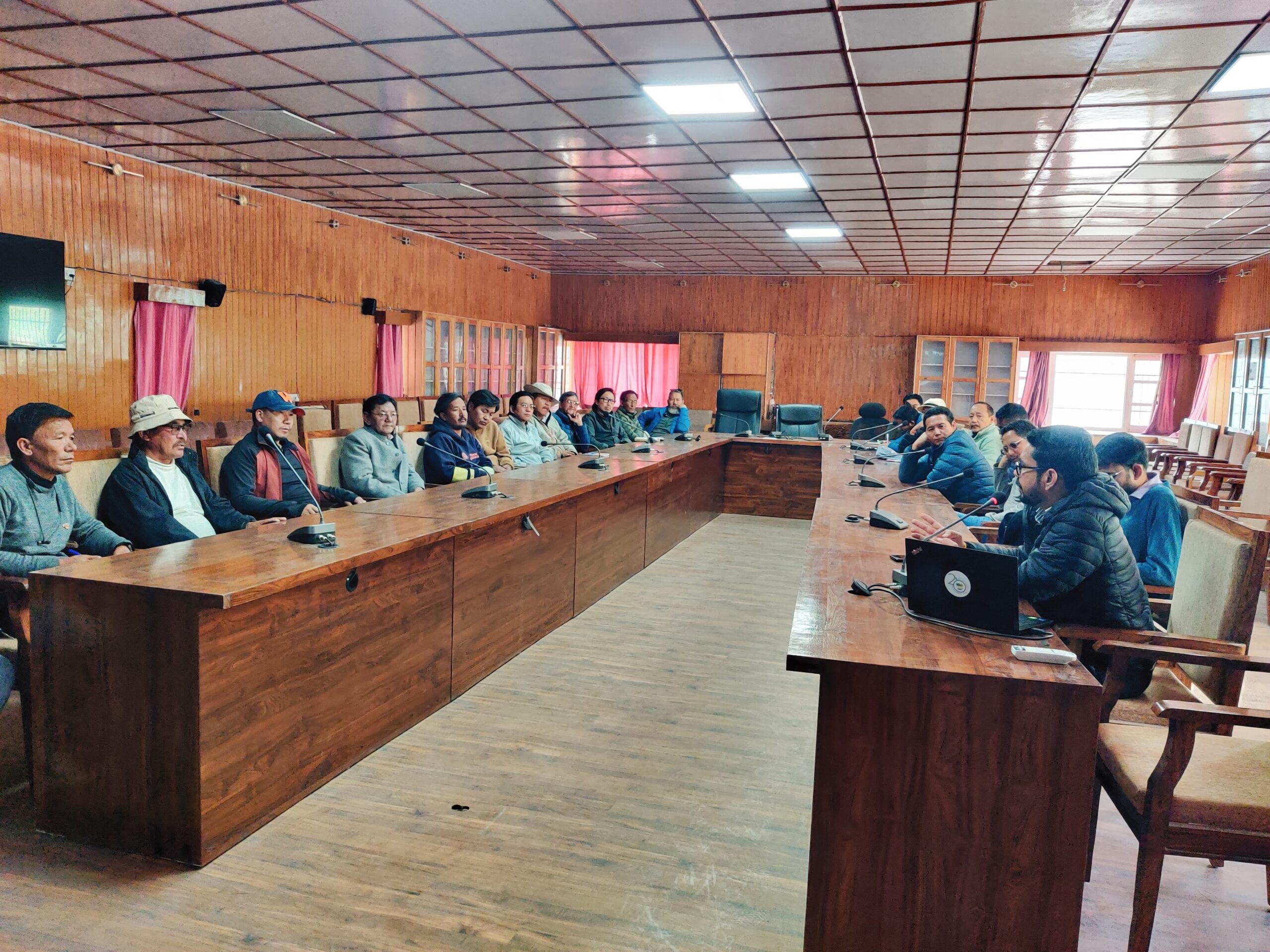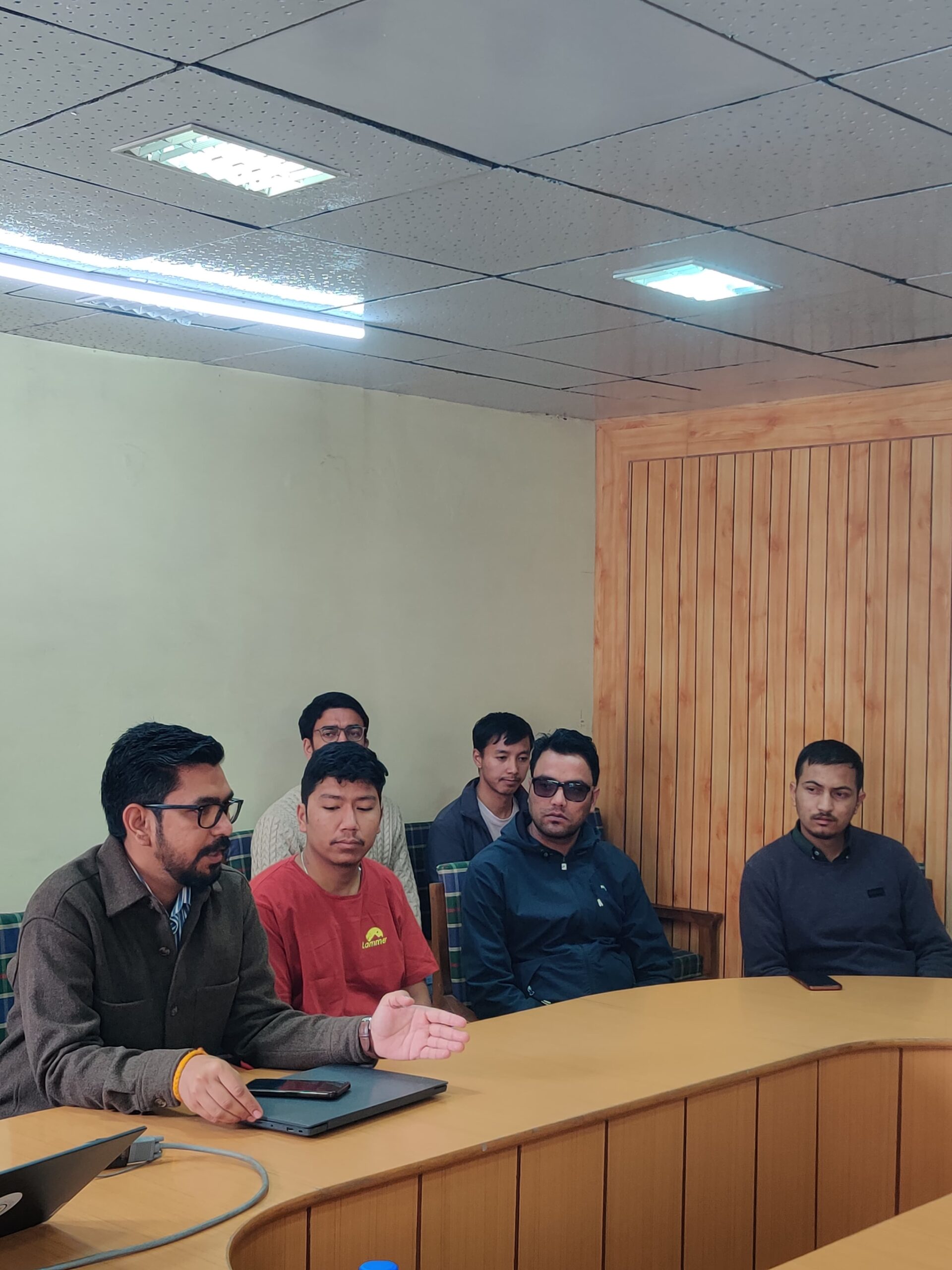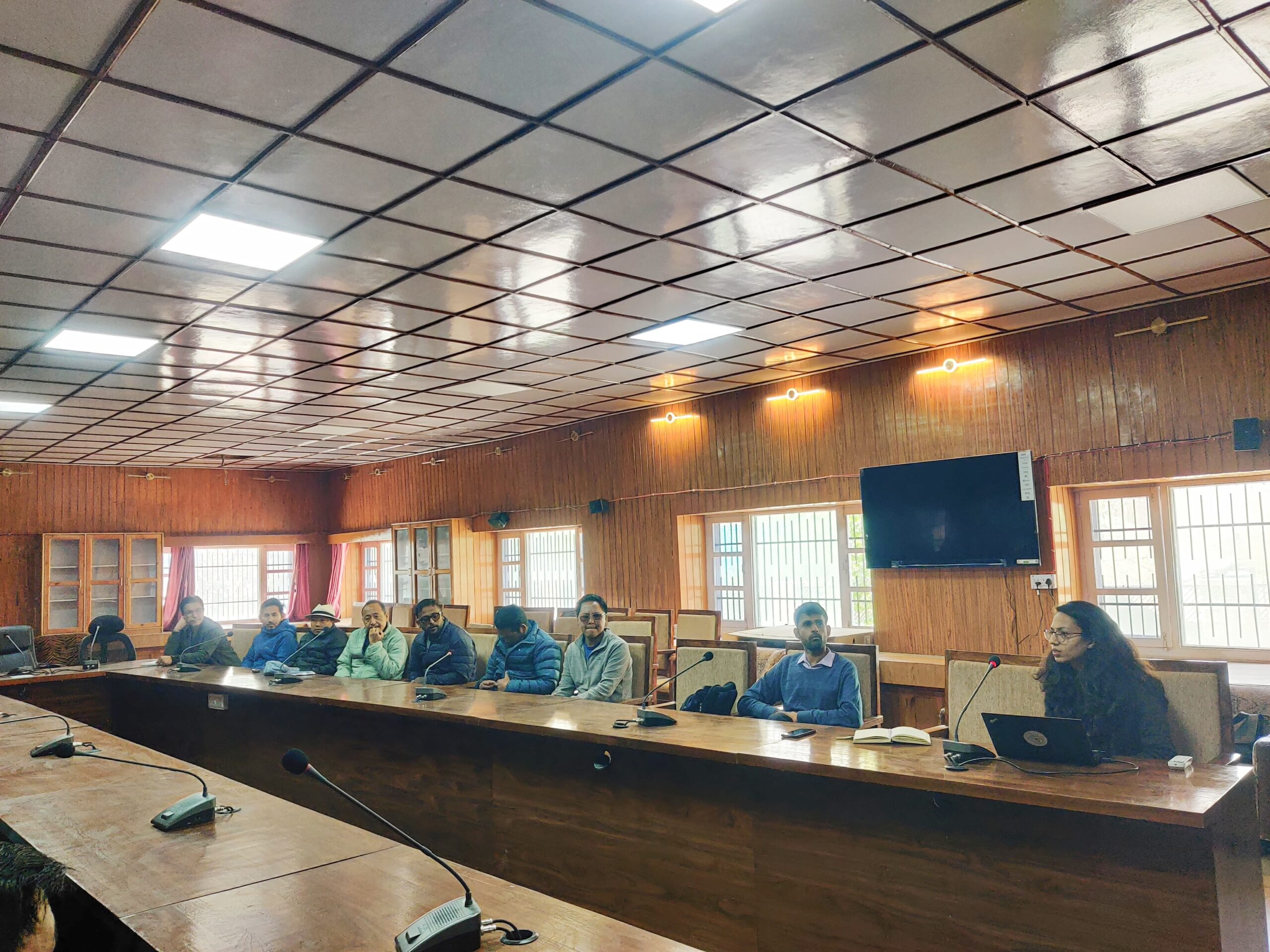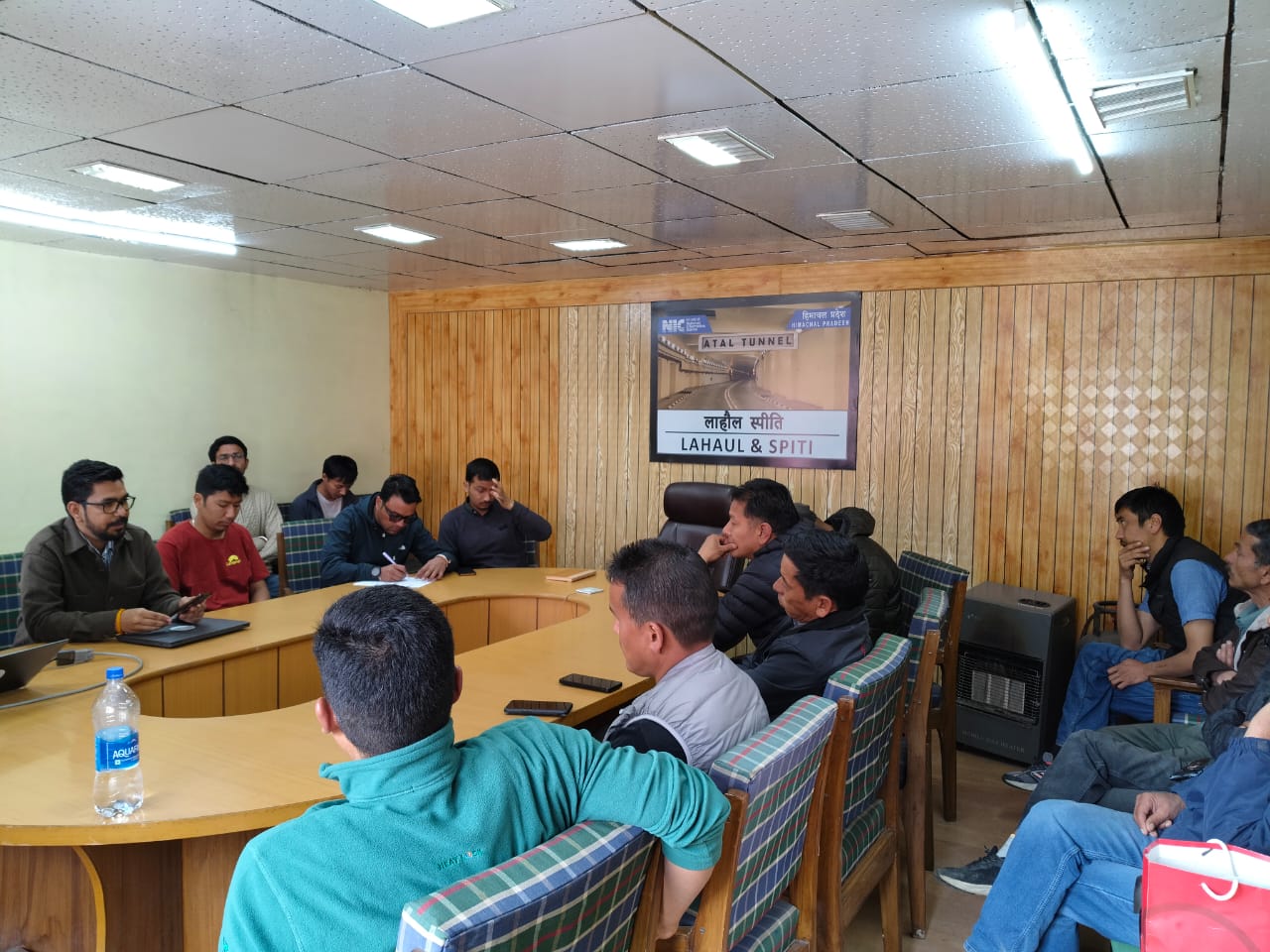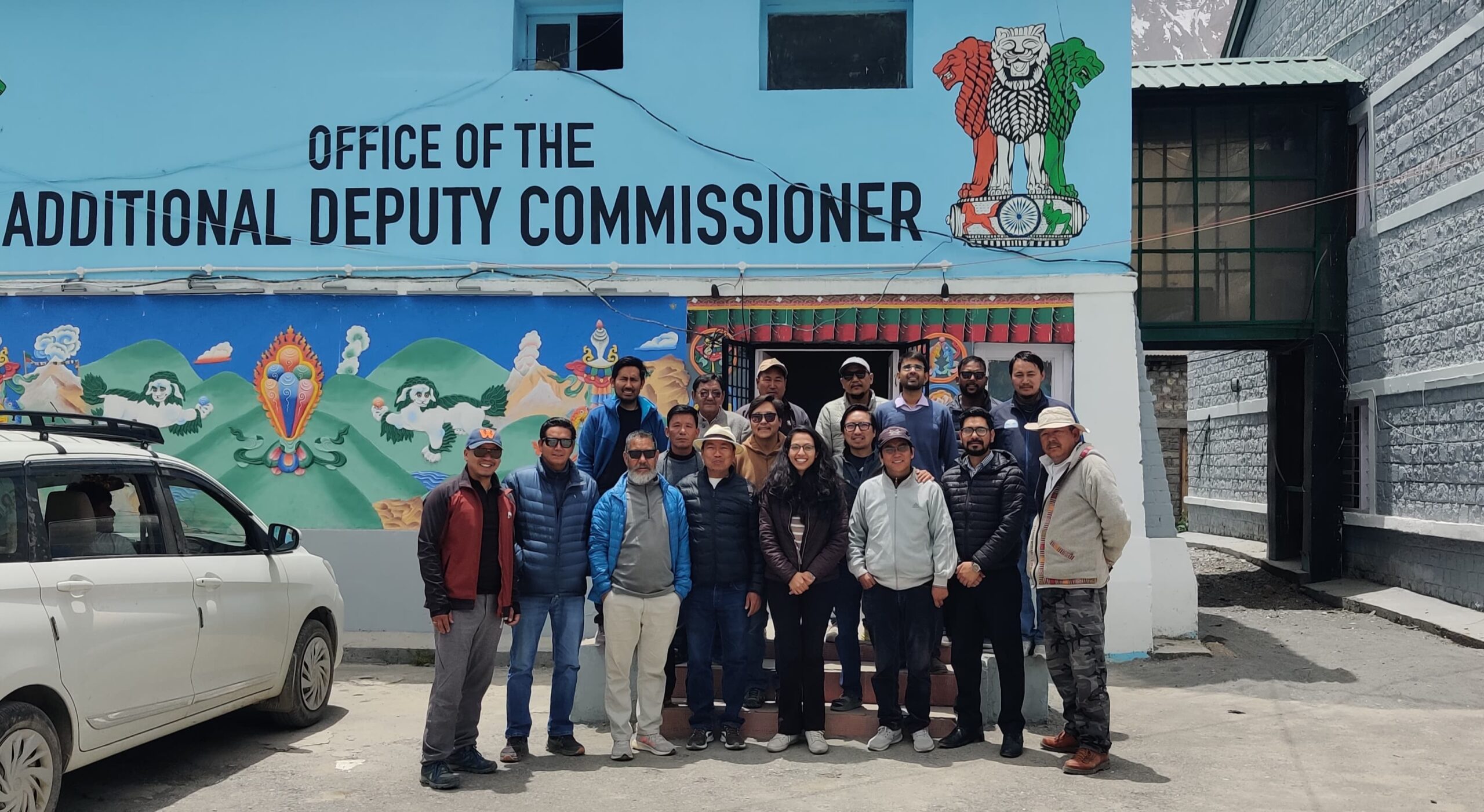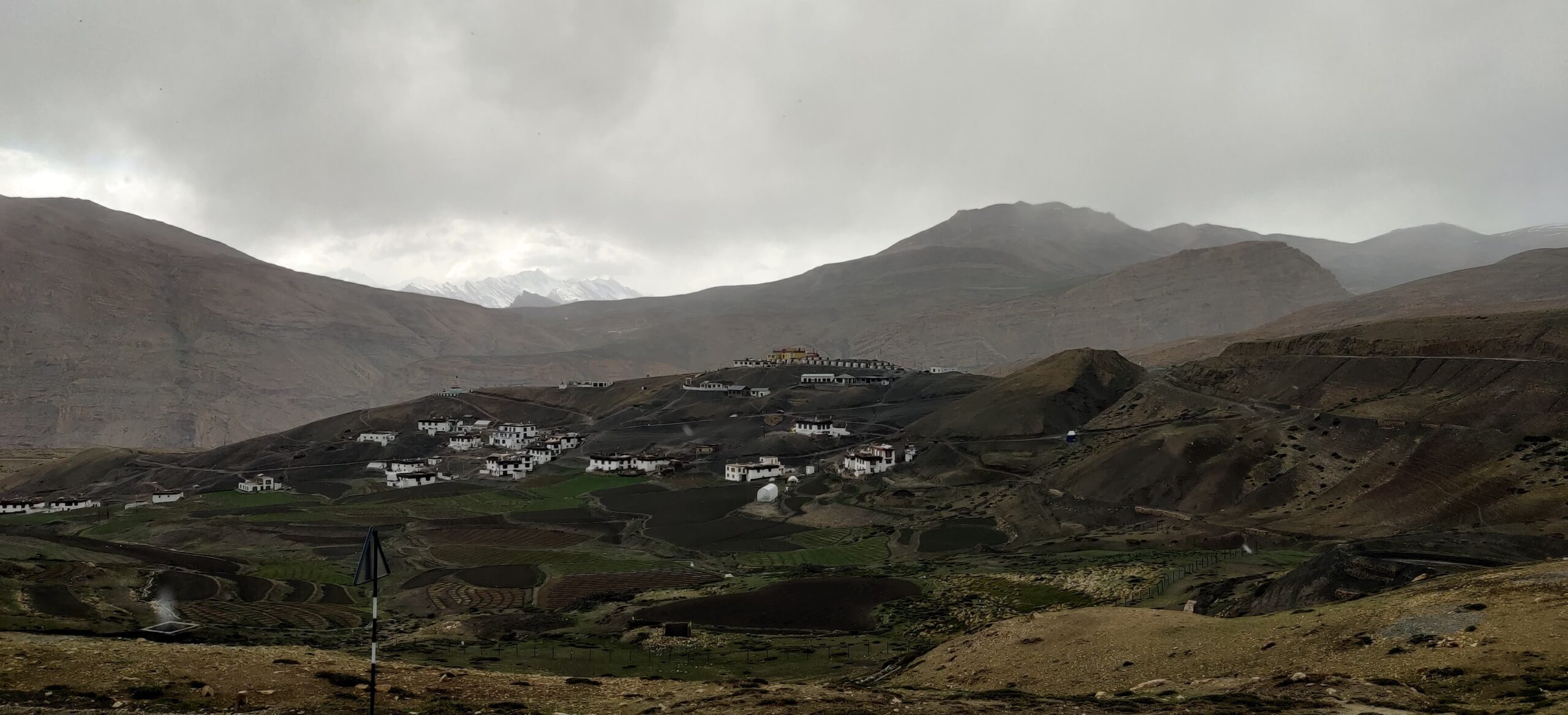Driving Change at High Altitudes: Promoting Electric Mobility in Lahaul Spiti

In India’s northern state of Himachal Pradesh, along the rugged Himalayan terrain lie the high-altitude districts of Lahaul and Spiti. With elevations ranging from 10,000 to 14,500 feet, it is one of India’s most breathtakingly beautiful and environmentally fragile regions, characterised by its cold desert climate, glacial terrain, and unique cultural heritage, and is increasingly attracting tourists, especially along the iconic Manali–Keylong–Leh route. However, growing footfall means an equally pressing need to balance development and tourism with conservation.
Recognising the fragility of the region, volume of traffic that operates through the area, and the importance of sustainable mobility in this sensitive ecology, ICLEI South Asia, in collaboration with the Directorate of Transport, Himachal Pradesh, organised Electric Vehicle (EV) Sensitisation Workshops in the twin hubs of Keylong and Kaza on 30 and 31 May 2025 respectively. The workshops were supported by the Deputy Commissioner and Sub-Divisional Magistrate offices and saw robust participation from local authorities and stakeholders.
The workshops promoted the adoption of electric vehicles and sustainable transport systems in the region. The transition to electric mobility presents a timely opportunity to mitigate the impact of tourism in the area, while simultaneously enhancing the visitor experience. It raised awareness about the benefits of electric vehicles in preserving both the natural and cultural heritage of the Himalayas. The ICLEI team emphasised the long-term environmental value of EV adoption, especially in reducing emissions and curbing the carbon footprint of tourism. Participants also learned how sustainable transport systems can improve air quality and protect the pristine landscapes that draw visitors to the area in the first place.
A major focus was on infrastructure and how hoteliers and local business owners can benefit from installing EV charging stations at their establishments, and help make Lahaul and Spiti more accessible to EV-driving tourists, and position the region as a sustainable travel destination. With the Himachal government actively promoting initiatives like the “Green Corridors” to expand EV infrastructure, highway-side amenities, and supermarkets at 41 strategic locations along the corridors and installing charging facilities in these locations, the workshops provided a timely push for local-level participation.
One of the key highlights of the events was the direct engagement facilitated between hoteliers and various charge point operators that introduced the different models of charger installation, such as revenue-sharing partnerships, lease-rent agreements, and full ownership. Through real-world examples and open dialogue, participants gained clarity on how to implement the learnings into real-life EV adaptation practices.
In light of the region’s unique high-altitude desert climate and power challenges, the workshops also explored the potential of solar-powered EV charging solutions. Such systems offer a resilient and clean alternative, especially during harsh winters when grid electricity can be unreliable. The Directorate of Transport offered technical guidance to support these innovations, ensuring that local businesses are not left alone in navigating this transition.
The sessions reinforced that EV infrastructure could significantly boost tourism appeal in remote high-altitude areas. With reliable charging options in place, EV-driving travellers will be more likely to explore regions like Lahaul, Spiti, and surrounding areas like Kinnaur, thereby distributing the benefits of tourism more evenly while maintaining environmental integrity.
Looking ahead, the success of these workshops has set the stage for continued engagement across Himachal Pradesh. By fostering partnerships between local authorities, businesses, and technology providers, ICLEI South Asia is helping the state government to build a robust EV ecosystem that caters to the needs of mountain communities. This work aligns with broader efforts to promote low-emission, climate-resilient development in India’s most vulnerable regions.
